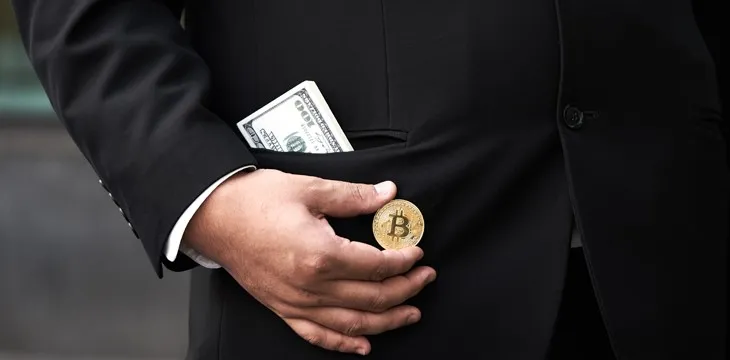|
Getting your Trinity Audio player ready...
|
It has been one of the biggest stories of the year to date. In February, reports emerged that investors lost over $145 million worth of cryptocurrency following the death of Gerald Cotten, founder of Canadian crypto exchange QuadrigaCX. Cotten was allegedly the only person with the keys to the exchange’s crypto stash. What followed was chaos, accusations, huge losses, court battles and widespread concern.
Tragic as it was, the Quadriga case opened the eyes of many investors on just how safe—or not—their crypto stashes are.
And for investors in Africa, the message hit home even more. In Canada where Quadriga operated, several other crypto industry stakeholders have already become involved. The case has also gone to court, with the deceased founder’s widow seeking credit protection. Other exchanges have also sought to help, with Kraken offering a $100,000 reward for any information regarding the lost coins.
This is all happening in a developed ecosystem. In Africa, it’s a bit different. For many governments, cryptos are an asset class that should be treated with suspicion or avoided altogether. The players in the industry are also not as advanced, with a large chunk of crypto trading being done on peer-to-peer platforms. While this is gradually changing, the continent is still a long way from reaching the elite nations’ level.
As such, it becomes even more crucial for African crypto investors to be fully aware of just how safe their cryptos are. In Africa, most countries are yet to put in place a comprehensive crypto regulation framework. Some have even shunned cryptos altogether. Unfortunately, this only leaves more loopholes through which crypto investors risk losing their assets.
One such loophole is the entrance of sub-standard players into the industry. These players, be they exchanges or wallets, usually lack the adequate capability to guard themselves against attacks.
Marius Leitz concurs, calling on regulators in the continent to step into the nascent industry. Leitz is the general manager of Luno’s Africa operations. Luno has established itself as one of the leading crypto exchanges and wallets in the continent. In a recent press release, he stated:
“We are very much in favor of regulation and we are actively working with a number of central banks and financial regulators, including the SA Reserve Bank, to drive regulation for cryptocurrency. Regulation will provide consumers or potential consumers with the comfort that the service they are dealing with is held to defined regulatory standards. Imposing regulations will, in turn, enhance general trust in and stability of the market.”
The South African market has been one of the most mature in the continent. In fact, a report by Hootsuite ranked the country top globally for percentage of internet users who own cryptos. And yet, crypto regulations in the country are still a long way from countries such as Malta and Switzerland.
Leitz revealed that Luno stores its customers’ cryptos in both hot and cold wallets. The exchange stores most of the cryptos in cold storage for enhanced security, however. The cold storage solutions consist of actual physical bank-like vaults. Only a few senior executives have access to these vaults.
“Our deep-freeze storage is purposefully difficult to access. So for our day-to-day operations, a small percentage of cryptocurrencies are kept in a combined-strategy system, using offline cold storage and an online hot wallet. This allows us to ensure we always have Bitcoin Core and Ethereum available during the day while leaving a majority of cryptocurrency safely offline,” he explained.
And while not everyone can trade on Luno, Leitz had a couple of pointers for investors regarding selecting a wallet or exchange. According to him, there are some fundamental questions that as an investor, you must ask yourself before selecting the company. They include whether you trust the team behind the service. This involves a bit of research on their background, with engineering and other technical backgrounds being more favorable.
Does the team understand and implement secure key storage? In the crypto world, whoever has the private keys owns the cryptos.
You must also stay away from companies that don’t implement two-factor authentication. This makes it much more difficult for a hacker to access your stash as they don’t have access to your phone or email.
The company must also have a history of undergoing regular security and financial audits, Leitz further advises. The audits ensure that should there be a vulnerability or misconduct, it’s snuffed out in good time.
And lastly, the people who back a company tell you a lot about the company. Reputable companies have a history of attracting funding from world-class investors. Luno ranks highly in this regard. It has raised over $13 million so far. Some of its backers include Balderton Capital, PayU and the Digital Currency Group.

 07-05-2025
07-05-2025 





